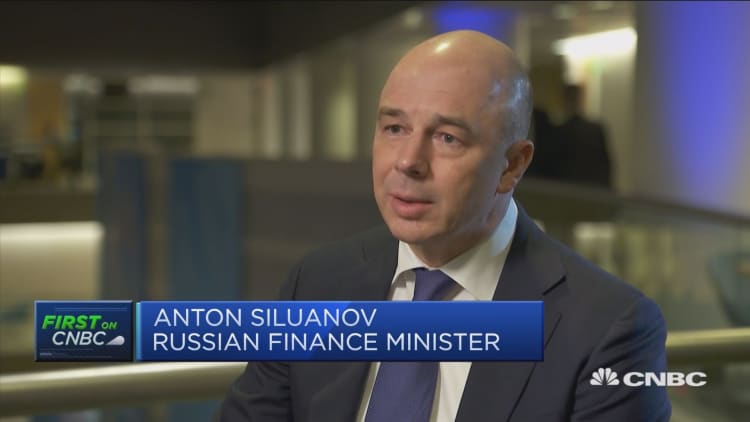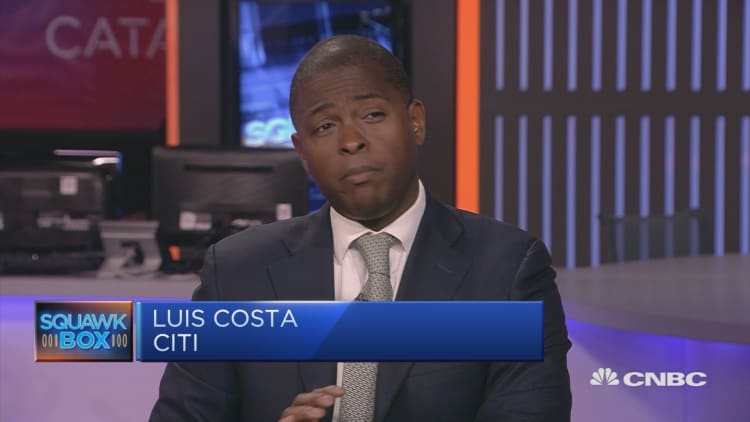
Russia stands ready to retaliate against the latest round of U.S. sanctions, the country's Finance Minister Anton Siluanov told CNBC.
The U.S. slapped sanctions on several Russian oligarchs, businesses and agencies thought to have ties to Russian President Vladimir Putin earlier this month. It prompted a dramatic market sell-off in Moscow, with investors seen dumping Russian assets amid elevated concerns over the country's economic position.
Speaking late Thursday on the sidelines of the International Monetary Fund's (IMF) spring meeting in Washington, Siluanov told CNBC: "We are not in favor of sanction-swapping. Nevertheless, our MPs (members of parliament) have drafted legislation that would allow us to introduce certain restrictions, both on exported goods and on goods imported into the country."
"Still, I would reiterate, any sanctions have a negative effect on the state of economies … I very much hope that these sanctions processes do not develop any further. We need to talk, we need to find agreements, we need to look for ways out in order to solve problems not by imposing sanctions but through political agreements," he added.
Sanctions blacklist

The U.S. added several Russian companies to a sanctions blacklist in response to Moscow's actions in Crimea and Syria, as well as its interference in the West — including suspected cyber activities. The Kremlin has since called these sanctions unlawful.
One of the most prominent casualties from Russia's recent market slump was aluminum giant Rusal. The company, owned by billionaire Oleg Deripaska, was directly targeted by Washington on April 6 and, in reaction to the news, investors then wiped half the value of its Hong Kong-listed stock and almost a third from its London-listed EN+ firm.
The Kremlin has since sought to try to manage the fallout by actively assisting large companies, such as Rusal, with additional liquidity, Siluanov said.
He added that while market turmoil in the country would "no doubt negatively impact the companies that found themselves hit by the restrictions," the Kremlin would not be updating its economic and budgetary forecasts.


